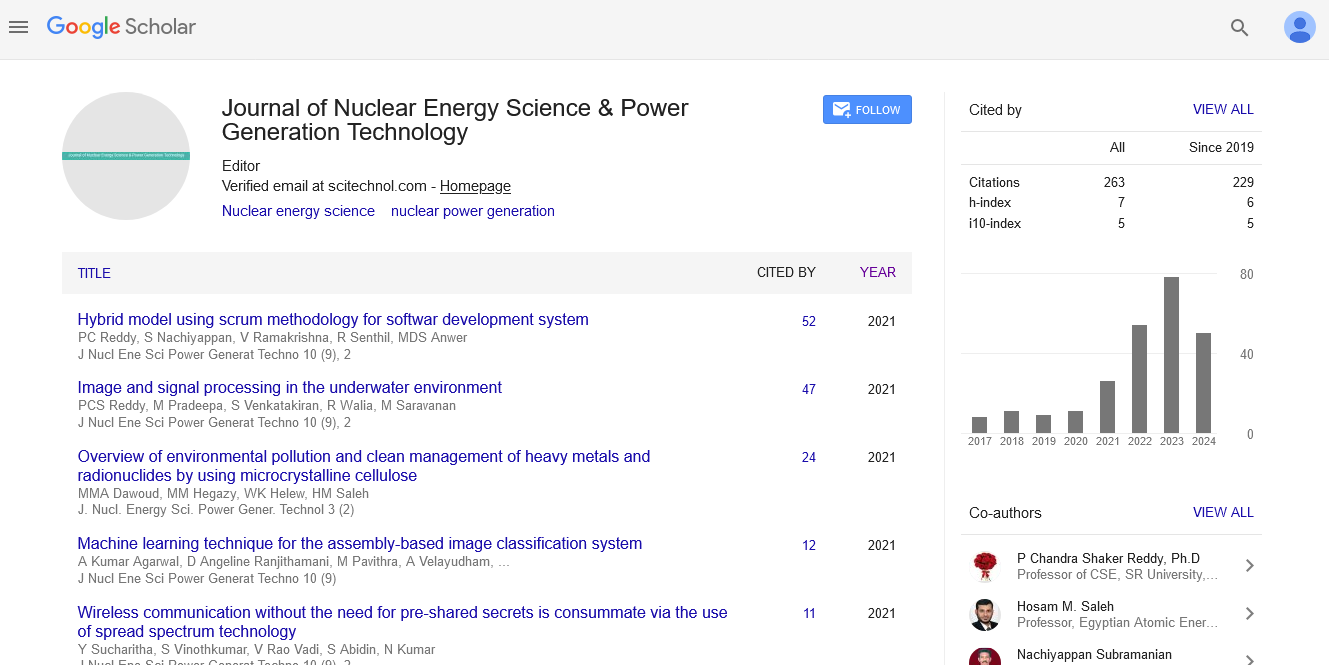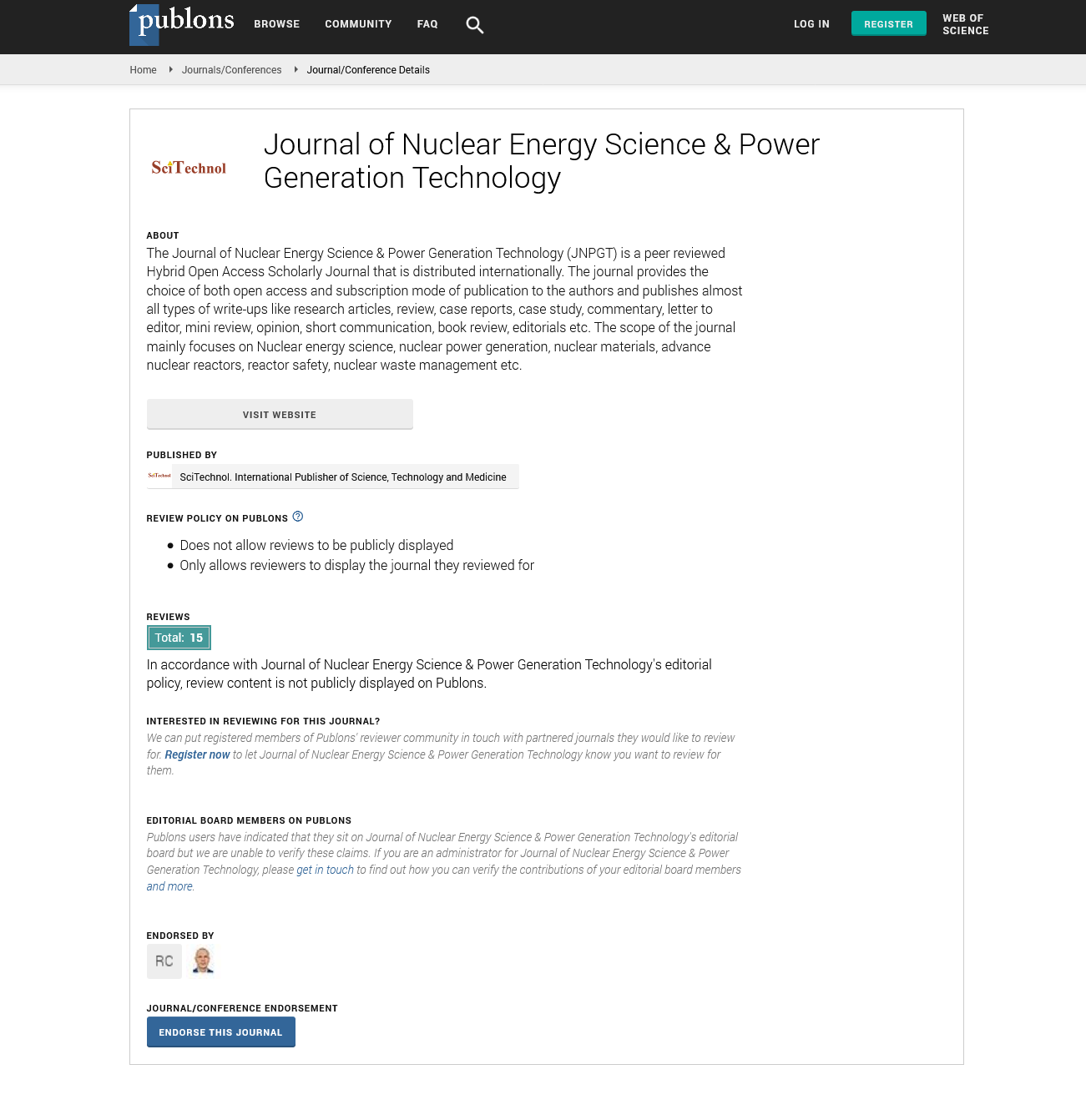Low temperature and high efficiency biomass fuel cell and bio-hydrogen production
Yulin Deng
Georgia Institute of Technology, USA
: J Nucl Ene Sci Power Generat Technol
Abstract
A novel fuel cell which can directly use native polymeric biomasses, such as starch, cellulose, lignin, switchgrass and wood powders will be discussed. This fuel cell combines some features of solar cells, fuel cells, and redox flow batteries. Specifically, an oxidation/reduction ion pair, such as Fe2+/Fe3+, or polyoxomatelate is used as a catalyst to oxidize biomass by either absorbing solar light or heat energy. The power density of the solar-induced hybrid fuel cell powered with raw biomass could reach ~50 mW/cm2. Unlike most cell technologies that are sensitive to impurities, the cell reported in this study is inert to most organic and inorganic contaminants present in the fuels. The fuel cell is completely noble metal free. The similar fuel cell system can also be converted to electrolysis cell for hydrogen production at low temperature using native biomass directly.
Biography
Yulin Deng completed his B.S. 1982, Northeast Normal University, China and Ph.D. 1992, Manchester University, United Kingdom. His research interest are renewable energy, nanomaterial synthesis and self-assembling, biofuel and biomass materials, colloid and interface science and engineering, polymer synthesis, and papermaking. Dr. Deng is an elected Fellow of the International Academy of Wood Science, a member of AIChE and TAPPI. He received several awards, including AIChE Forest Bioproducts Division Chase Award, IPST President Research Award. He serves editorial board member for five journals, and associate editor for two journals.
E-mail: yulin.deng@rbi.gatech.edu
 Spanish
Spanish  Chinese
Chinese  Russian
Russian  German
German  French
French  Japanese
Japanese  Portuguese
Portuguese  Hindi
Hindi 

